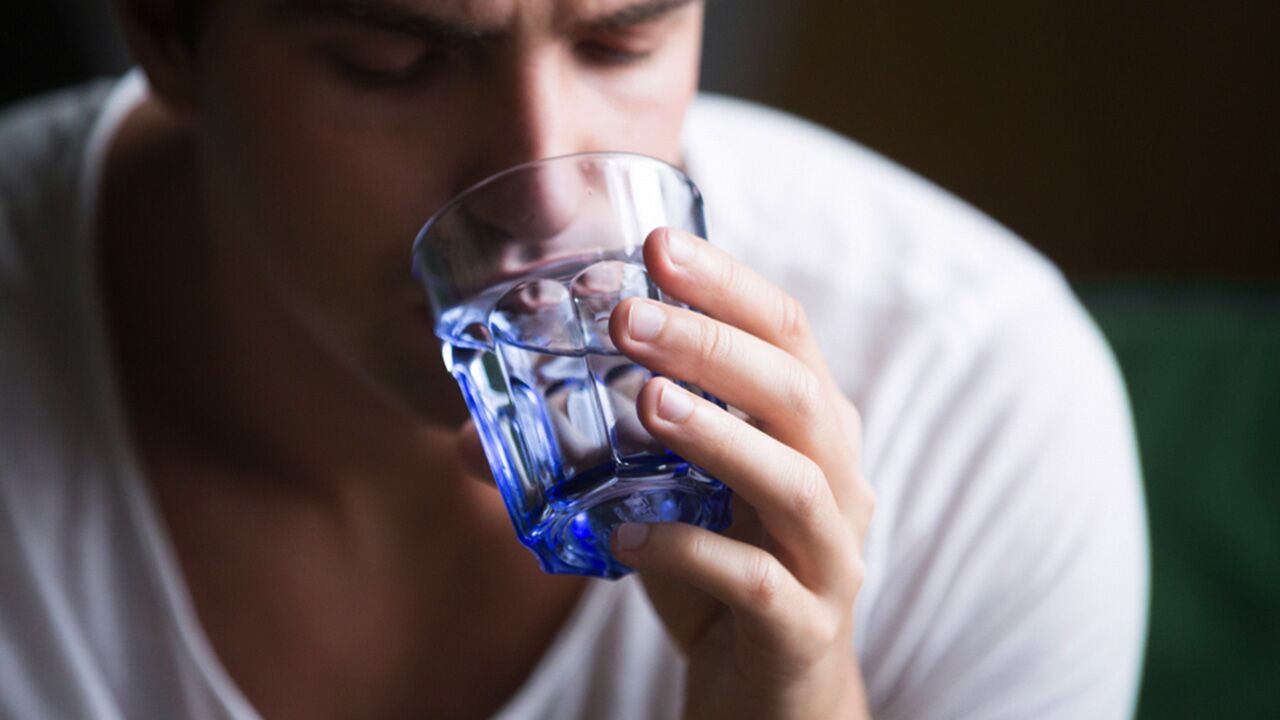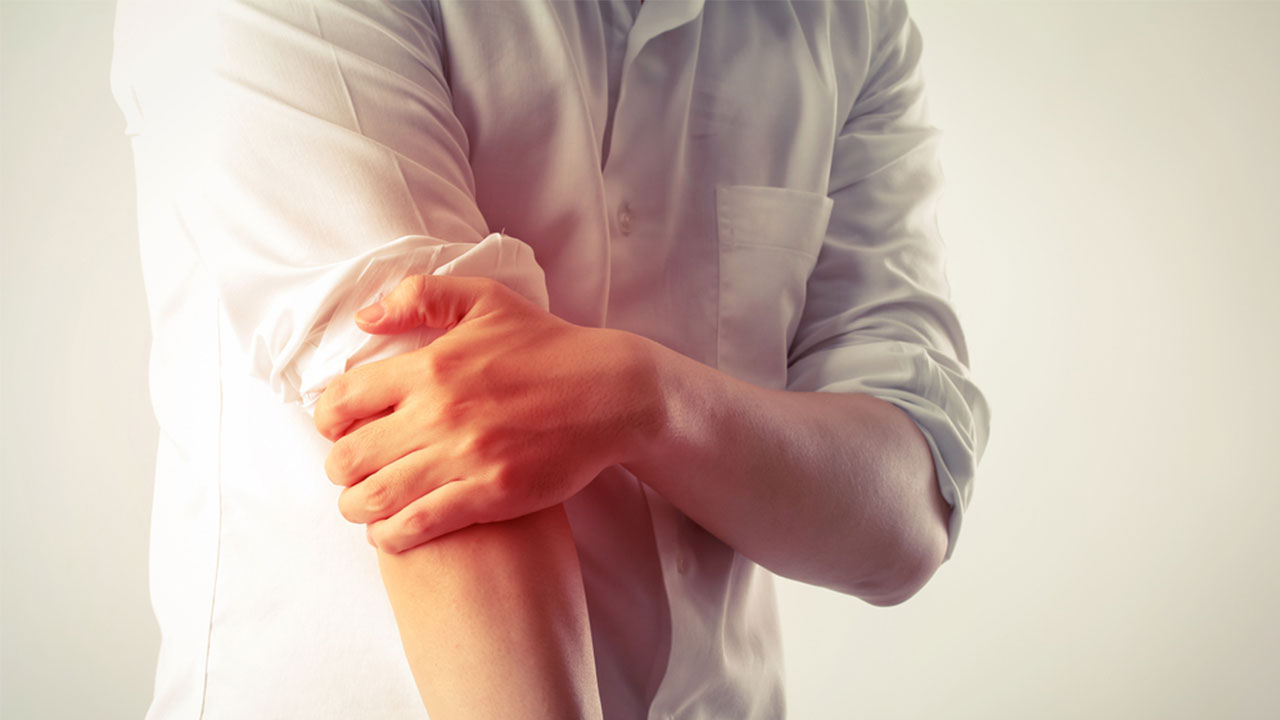Stay Hydrated! 14 Signs of Dehydration
 By: by Amino Science
By: by Amino Science

The human body is 70% water. Fluids are important for protecting the joints, maintaining organ function, transporting oxygen to cells, and sustaining body temperature. Dehydration, which is most common during hot weather or strenuous workouts, happens when the body loses too much water without being replaced. Even mild dehydration can produce symptoms such as mood swings, headaches, muscle cramps, and fatigue.
Perspiration, hot weather, sun exposure, and lack of fluids throughout the day cause dehydration, which is the main determinant of heat exhaustion, which, in turn, can lead to life-threatening heat stroke. Preventing dehydration is especially critical for people who are active or who sweat a great deal. Read on for 14 must-know signs of dehydration.
Causes of Dehydration
Dehydration occurs when the loss of body fluids exceeds the intake. More water is exiting individual cells and the body than the amount of water ingested through drinking. When this happens, the body loses enough fluid to undermine its capability to function normally, and then demonstrates symptoms of the fluid loss. While infants and young children have a greater risk for dehydration, many adults, especially older adults, have critical risk factors.
People lose water every day when expelling body fluids, along with salts and electrolytes, and as water vapor when exhaling. Bodies are always readjusting the balance between intake and release of water, salts, and electrolytes. Losing too much fluid puts the body out of balance, or dehydrates. Mild and moderate dehydration can be adjusted by drinking fluids containing electrolytes or salts. Severe dehydration can be critical or even life-threatening.
Many conditions can increase your risk of dehydration:
- Fever, vomiting, diarrhea, and increased urination when ill
- Heat exposure, humid weather, too much exercise, or work-related activity
- Diseases such as diabetes
- Inability to seek appropriate water and food
- Impaired ability to drink
- Lack of access to safe drinking water
- Skin infections or injuries
14 Signs of Dehydration
The symptoms of dehydration can sneak up on you, so beware of the most common dehydration alerts!
1. Fatigue
People feel very sluggish or tired when they are dehydrated. Chronic dehydration reduces blood flow and blood pressure because of decreased water content and oxygen in the blood. Muscles and nerves cease to function after exertion. The heart has to work harder to keep the skin and muscles supplied with oxygen and nutrients, which can cause you to feel drowsy or lethargic. When you feel fatigued after an illness, doctors recommend rest and fluids. Most bodily functions are impacted by fluid balance, making small changes significant in daily performance and activities.
2. Skin Elasticity Loss
Doctors pinch the skin to see how fast it bounces back. Skin that is properly hydrated snaps back to normal quickly, but dehydrated and dry skin stays elevated and goes back to normal slowly. Hydration keeps skin looking young and minimizes sagging. Properly hydrated skin looks doughy, while dehydrated skin demonstrates a lack of resilience and elasticity.
3. Lightheadedness, Confusion, and Irritability
When blood pressure drops because of dehydration, standing up too quickly causes dizziness, a condition called orthostatic hypotension. Severe dehydration can lead to intense confusion and dizziness. Dehydrated infants and children may become irritable, fussy, and confused, while blood pressure falls. A dehydrated person may seem delirious and lose consciousness.
Even mild levels of dehydration can affect mood and cognitive functions. Dehydration reduces water volume by 1.5%, impacting a person’s mood, energy, and ability to think coherently. Changes in electrolyte levels can also change levels of serotonin, which affects mood changes.
In physical activity, the body directs blood to the muscles. Dehydration removes the ability to direct enough blood to the brain, producing a dizzy spell. Exertion raises body temperature and breathing rate, diluting blood vessels in the brain and causing dizziness or lightheadedness.
4. Constipation
Water absorption is needed for proper digestion, including bowel movements. Fluids move things along, through the intestines and out of the body. Water maintains smooth and malleable intestinal walls. If you are dehydrated, the colon redirects fluid into the bloodstream.
5. Muscle Cramps
Hydration and electrolyte balance are critical to muscle contraction. If sodium and potassium levels are low, you can experience painful muscle spasms. If a muscle is unable to relax, there can be a muscle cramp or spasm. Dehydration can turn muscle spasms into muscle cramps when muscles contract and harden for a period of time, from a few seconds to a few hours. Hydrating can reduce the pain and eliminate continued cramping.
Lack of adequate fluid makes muscles hypersensitive. When the nerves that connect to the muscles are not surrounded by adequate water and sodium, there can be involuntary muscle contraction or spasms causing muscle cramps.
6. Discolored Urine
Concentrated, discolored urine indicates dehydration. When blood pressure levels fall, the kidneys try to store water instead of removing it from the body. Medications, foods, and certain diseases can change urine color as well.
7. Minimal Urine
The quantity of urine can predict a person’s state of hydration. It is a sign of dehydration if someone goes without a bathroom visit for a period of 4 to 6 hours. Children who become dehydrated can also produce a lack of wet diapers.
If urine is both minimal and discolored, it is likely that dehydration is the culprit. Dehydration occurs when the volume of water in the body is depleted. Kidneys, which filter waste, tell the body to retain water. Thus, there is less water in the urine, making it more concentrated and darker.
8. Heart Rate Increases
Dehydration is associated with plunging electrolyte levels, causing increased heart rate and heart palpitations or spasms in the actual heart muscle. When blood pressure decreases, breathing and heart rate accelerate to show potential dehydration.
9. Low Blood Pressure
Low blood pressure occurs when the blood flow is not sufficient for transporting enough oxygen and nutrients to various organs. While low blood pressure does not always signify dehydration, blood pressure can sometimes drop because of a lack of fluid in the body. When low blood pressure is caused by dehydration, fluid intake facilitates an increase in blood volume, which then helps increase the blood pressure reading.
10. Overheating
Fluid levels keep body temperatures regulated to avoid overheating or having heat stroke. Overheating can come from physical exertion or being in a hot environment. Bring water when working out or being outdoors in the heat.
11. Lack of Tear Production
Dehydrated children and adults can cry and stop producing tears. Adults can have dry mucous membranes, making the nose, mouth, and tongue dry and sticky. Eyes may appear sunken.
12. Dry Mouth
Dehydration can be indicated by a dry throat, mouth, and tongue. Some people feel hunger when dehydrated, which is why a University of Washington study indicated that a single glass of water can easily stop nighttime hunger pangs in almost all cases. Late stage hydration manifests as “dry mouth,” that dry, parched, thick feeling in the mouth that many of us have experienced.
13. Bad Breath
A person who is well hydrated has sufficient saliva in the mouth to keep it adequately moistened. Saliva has antibacterial properties to regulate bacterial growth in the mouth. When dehydrated, lower saliva production causes bacterial overgrowth that leads to bad breath.
14. Headaches
Dehydration can trigger stress that can cause a headache because it alters the body’s natural balance. The headache warns people that their physiological equilibrium is unbalanced.
Another reason for headaches is liquid deprivation, making the blood more concentrated and causing inflammatory proteins in the circulatory system to irritate nerves surrounding the brain.
The most serious warning signs of dehydration include:
- Inability to urinate
- Extremely dark, yellow urine
- Parched skin
- Dizziness
- Rapid heartbeat
- Accelerated breathing
- Sunken eyes
- Fatigue and lack of energy
- Confusion
- Irritability
- Fainting
If left untreated, dehydration can bring on confusion, urinary tract infections, kidney stones, weakness, pneumonia, and even death.
Dehydration Diagnosis
In addition to assessing your dehydration symptoms, doctors will start diagnosing dehydration by taking your blood pressure, which will be low. To ascertain just how dehydrated someone is, further tests are typically ordered. Blood tests measure electrolyte levels, especially sodium and potassium, as well as kidney function. Tests performed on the urine can determine the effects of dehydration and its extent and check for a bladder infection.
Dehydration Treatment
To treat dehydration, replace lost fluids and lost electrolytes. The best treatment approach depends on age, severity, and cause.
An over-the-counter oral rehydration solution formulated with water and salts is a helpful way to restore lost fluids and electrolytes to infants and children. Adults likewise need to replenish with fluids when experiencing mild to moderate dehydration from diarrhea, vomiting, or fever. Individuals who work or exercise outdoors in hot and humid conditions can stay hydrated with cool water or sports drinks containing electrolytes and a carbohydrate solution.
If children and adults are severely dehydrated, they need to be treated by emergency personnel who restore fluid volume and seek underlying causes. Hospitals can administer salts and fluids through a vein, enabling quick absorption to speed recovery time.
Home remedies can help with mild to moderate dehydration. They include:
- Sipping small amounts of water
- Drinking carbohydrate/electrolyte drinks, such as sports drinks
- Sucking on popsicles made from juices and sports drinks
- Sucking on ice chips
- Sipping through a straw
- Removing or loosening clothing
- Being in an air-conditioned or fan-cooled area
- Using a wet towel, spray bottle, or mister
Dehydration Prevention
Dehydration is easy to prevent. Preparation goes a long way.
- Drink plenty of fluids, including sports drinks that contain electrolytes, and bring water bottles to outdoor events and work areas where increased sweating, activity, and heat stress can increase fluid loss.
- Replace fluids at a rate equal to the loss.
- Avoid exercise and exposure when there is high air temperature with high humidity. Plan outdoor events at other times. When exercising support hydration with an energy-enhancing amino acid powder mixed with water.
- Give older people, infants, and children enough drinking water and fluids containing electrolytes. Encourage incapacitated or disabled people to drink and give them adequate fluids.
- Minimize alcohol consumption in hot weather, because it increases water loss and interferes with the ability to notice early signs of dehydration.
- Wear light-colored and loose-fitting clothing and carry a personal fan or mister.
- Limit exposure to hot temperatures. Find air-conditioned or shady areas for cooling.
- Clemson University has developed recommendations for fluid intake when a person needs to endure outside activity in hot weather:
- Drink 2 cups of plain water (or diluted fruit juice) during the 2 hours before exercising; 1 to 2 cups within 15 minutes of the activity.
- Drink 1/2 to 1 cup every 15 to 20 minutes during exercise.
- Drink 3 cups for each pound of body weight lost.
Dehydration Prognosis
If dehydration is treated and the cause is determined, most people will recover well. If the cause is heat exposure, too much exercise, or decreased water intake, dehydration is easy to remedy. Severe dehydration is challenging, and the prognosis depends on how well the underlying cause responds to treatment.


Up to 25% off Amino
Shop NowTAGS: conditions
Join the Community
Comments (0)
Most Craveable Recipes




 833-264-6620
833-264-6620



















